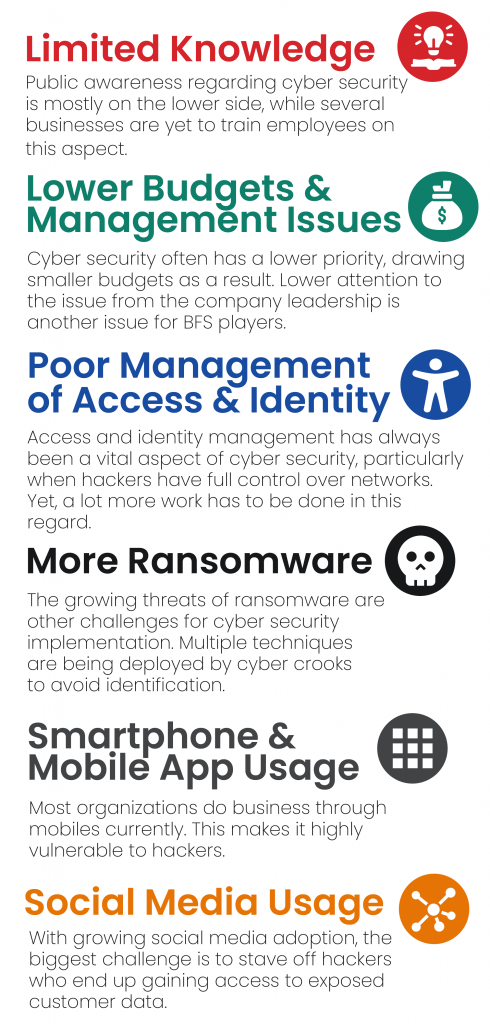
Boosting cyber security in the BFS (banking and financial services) sector is of the utmost importance. With the increasing cyber-attacks on these institutions and their widespread shift towards digitized financial services, caution is the name of the game at this juncture.
It is a reality that the BFS industry is under higher threats these days, becoming arguably the highest-targeted sector for cyber crooks. There is always a need for prompt threat detection along with robust network security to combat risks like data breaches and digital banking threats.
Credit-card threats are also on the rise in recent years. Malware as a service or MaaS is another unfortunate and problematic trend of launching malware attacks.
DDoS (distributed denial of service) attacks are also issues for BFS players, where a compromised PC network is leveraged for creating a huge number of false requests to the systems of the platform or bank, thereby leading to a disruption in operations and leaving them unable to respond to consumer requests of a legitimate nature. This naturally makes cyber security a necessity for the BFS industry.
Cyber security is the collection of protocols, technologies, and other methods which help guard against damages, attacks, viruses, malware, data thefts, hacking, and unauthorized access to devices, networks, data, and programs. Safeguarding user assets is the key objective in this case, while upholding data privacy and adhering to data safety regulations simultaneously.
Digital payments, debit and credit card usage, wallets, and other cashless means of transactions necessitate cyber security measures.
Data breaches are not only damaging for customers, but also costly for financial institutions. Cyber frauds or attacks also lead to a huge amount of time and energy being spent in recovering from the same.
Inappropriate usage of private data may also be damaging in a larger context, since user information is usually sensitive.
Cyber security measures are necessary to prevent issues like phishing attacks, Trojans, spoofing, ransomware, and more.

Network tracking is continually scanning networks for signs of any intrusive or dangerous behaviour. It is frequently used in tandem with other security measures like IDS (intrusion detection system), antivirus software, and firewalls. This software enables either automatic or manual tracking of network security.

The application security guards applications which are vital for business functions. This come with features like code signing and listing, while enabling synchronization of the security policies with requisite file-sharing permissions and also multi-factor authentication. AI is now playing a vital role in cyber security, enabling better authentication or verification protocols.

Financial cyber security involves data integrity, risk management, risk analysis, and security awareness training. Some other core aspects include evaluation of risks and prevention of harm from the same. Data security also takes care of ensuring the security of sensitive data.

Wide-area connections enable prevention of attacks for huge systems, while adhering to rigorous safety protocols. It continually tracks all vital programs and undertakes security checks for servers, users, and networks.
